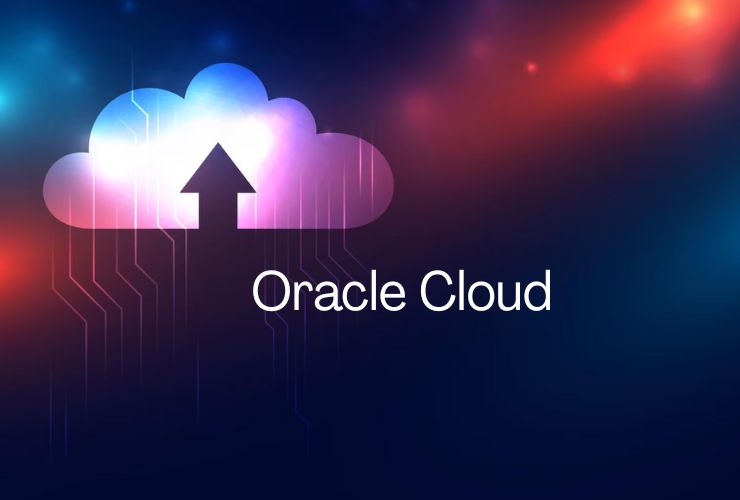Migrating to Oracle Cloud presents a powerful opportunity for enterprises to leverage modern cloud technologies to enhance scalability, improve security, reduce operational costs, and accelerate innovation. However, cloud migration is a complex process that requires detailed planning, precise execution, and ongoing optimization to truly unlock these benefits.
Whether you are migrating legacy applications, mission-critical databases, or entire enterprise workloads, following Oracle Cloud migration best practices ensures a smooth, secure, and cost-effective transition with minimal disruption to business operations.
Important Guidelines for Oracle Cloud Migration
1. Assess and Plan Rigorously
All good cloud migrations start with a thorough assessment. Start with an audit of your existing IT ecosystem. This audit should include applications, databases, and data workflows. Ideally, you will want to analyze dependencies, establish baseline performance metrics, and determine compliance obligations. The migration should also be laid out with the proper planning to establish timelines, mitigation plans, and allocations of required resources, so that execution is seamless, and all stakeholders are aligned.
2. Make the Right Migration Decisions
It’s important to use the right decision-making process to migrate systems to the cloud. The most common patterns for migrating systems include:
Lift-and-Shift (Rehosting) – The quick and easy method of simply moving workloads to the cloud “as-is”. It is best for migrating workloads quickly but does not fully harness the benefits of cloud.
Re-platforming – This is a slight modification to support the cloud while keeping all the core architecture.
Refactoring – This is a radical redesign of applications to be Cloud-native, which maximizes scalability, performance, and cost savings. Refactoring is labor and resource intensive, but in the long run, it leads to an improved outcome for most scenarios.
Understanding a customer’s business and technical goals will better inform migrating systems to the cloud.
3. Ensure Data Integrity and Security
Data security should remain a critical consideration throughout the migration process. Always use encrypted protocols for data in transit and at rest, and check for data integrity after the migration is complete to ensure data loss or corruption has not occurred. Oracle Cloud provides comprehensive offerings for security, like identity and access management (IAM), encryption keys, and compliance certifications — all of which help maintain the security of the enterprise’s sensitive data.
4. Open Oracle Cloud Migration Tools and Services
Oracle provides a suite of tools to help simplify your migration, including:
- Oracle Cloud Infrastructure (OCI) Migration: automates workload transitions.
- Oracle Data Transfer Service: A way to transfer large sets of data efficiently.
- Oracle GoldenGate: Enables real-time data replication, minimizing downtime during database migration.
5. Emphasis on Testing Before Going Live
Testing all applications and databases in the new environment is crucial to ensure everything is functioning as expected. The same steps are critical in a controlled staging environment for multiple domains – performance, security, and compatibility tests. Face issues of any kind early rather than after the last cutover that would lead to costly downtime.
6. Optimize and Monitor Post Migration
Lastly, migrate is not the end of the process. Your data cloud experience is optimized through continuous monitoring and improvement techniques to help derive maximum ROI. Take advantage of Oracle Cloud’s monitoring and analytics tools to measure workload utilization, application performance, and security events.
Oracle Cloud Migration Advantages
- On-Demand Scalability: Dynamically scale resources as workloads change without over-provisioning
- Better Security Posture: Leverage Oracle’s security framework and global compliance
- Cost Effective: Pay as you go to reduce capital expenditures and optimize operational costs.
- High Availability and Disaster Recovery: Oracle Cloud has a resilient architecture that ensures business continuity and fast recovery.
- Innovation Enablement: Access to new AI, machine learning, and analytics services to accelerate digital transformation projects.
Why Empirical Edge for Oracle Cloud Migration?
At Empirical Edge , we have deep experience in Oracle Cloud migration and cloud-native solutions customized for your organization. Our team employs best practices and a practical approach to create a migration strategy that minimizes downtime and risk, while maximizing the benefits of cloud adoption.
We offer a complete suite of Oracle Cloud services –
- Oracle Cloud Migration Strategy Consulting: We examine your current landscape and design a migration roadmap that is aligned with your objectives.
- Application and Database Migration: Move your critical applications and databases to Oracle Cloud with minimal disruption.
- Cloud Infrastructure Setup and Optimization: Design and build a secure, scalable, and cost effective Oracle Cloud environment.
- Security and Compliance Management: Implement best-in-class security controls and ensure regulatory compliance.
- Ongoing Support and Monitoring: Provide continuous management, optimization, and support post-migration for sustained performance and security.
Realizing Your Cloud Transformation Goals with Empirical Edge
By partnering with Empirical Edge, you gain a trusted advisor committed to your success at every stage of the cloud migration journey. Our proactive approach ensures your enterprise benefits from Oracle Cloud’s full capabilities — accelerating innovation, driving operational efficiency, and enhancing customer experiences.
Ready to unlock the transformative power of Oracle Cloud? Contact Empirical Edge today to discuss how we can help you migrate confidently and maximize your cloud investments.
Migrate to Oracle Cloud with Confidence
A well-planned cloud migration can transform your IT infrastructure, improve agility, and reduce operational costs. Empirical Edge helps businesses execute secure, efficient, and future-ready Oracle Cloud migrations—from strategy and assessment to deployment and optimization—ensuring minimal disruption and maximum value.
Frequently Asked Questions
Oracle Cloud migration is the process of moving applications, databases, and workloads from on-premises infrastructure or other cloud platforms to Oracle Cloud to improve scalability, performance, and cost efficiency.
Organizations migrate to gain benefits such as enhanced security, high availability, flexible scalability, and reduced infrastructure management, helping them modernize IT operations.
A successful migration typically involves assessing current systems, defining a clear strategy, selecting the right migration tools, testing workloads, and optimizing the environment after deployment.
Proper planning, data backup, phased migration, and continuous testing help reduce downtime, prevent data loss, and ensure business continuity.
Yes. Oracle Cloud is designed to support enterprise workloads with strong performance, compliance standards, and infrastructure capable of handling complex business applications.
The timeline depends on factors such as infrastructure size, application complexity, and data volume. With expert guidance and a structured roadmap, businesses can accelerate the transition.











